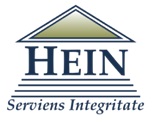Keywords
digital single market, EU market regulation, online intermediaries, platform liability, liability exemptions, sustainability
Abstract
The Commission has advanced sustainable and responsible behaviour of business operators in the digital environment since the adoption of the Strategy for the Digital Single Market of 2015. The question remains, how can we reach the normative goal of ensuring a safe, secure and fair online environment, where fundamental rights are protected, and responsibilities of platforms, especially large players and gatekeepers, are well defined? A “smart mix” of mandatory and voluntary rules, in combination with industry self regulation, is applied to address business and fundamental rights. This paper asks how the Digital Services Act (DSA) answers the call for sustainable market regulation. Ideally, sustainable market regulation may respond to specific risks, and impose tailored duties for “diligent economic operators”, without setting liability enhanced policy or enforcement targets for normal business activity. The paper discusses what has changed in the approach adopted in the DSA; what is the role of intermediaries in the information flows online; and how this is linked to information and data, important from the perspective of energy consumption as a parallel sustainability goal. It analyses briefly the CJEU case law on balancing liability exemptions with fundamental rights, including the right to information and its impact on the interpretation of the DSA. The paper also considers how the DSA fosters the concept of diligence in the online environment, as well as consumer empowerment, as an important feature of sustainable market regulation.
Résumé
Depuis l’adoption de la stratégie pour le marché unique numérique en 2015, la Commission encourage les opérateurs économiques à adopter un comportement durable et responsable dans l’environnement numérique. La question reste de savoir comment atteindre l’objectif normatif consistant à garantir un environnement en ligne sûr, sécurisé et équitable, où les droits fondamentaux sont protégés et où les responsabilités des plateformes, en particulier des grands acteurs et des gardiens, sont bien définies. Un «mélange intelligent» de règles obligatoires et volontaires, en combinaison avec l’autorégulation du secteur, est appliqué pour traiter la question des entreprises et des droits fondamentaux. Le présent article s’interroge sur la manière dont la loi sur les services numériques répond à l’appel en faveur d’une régulation durable du marché. Dans l’idéal, une réglementation durable du marché peut répondre à des risques spécifiques et imposer des obligations adaptées aux opérateurs économiques diligents, sans fixer d’objectifs de responsabilité, de politique ou de mise en œuvre renforcés pour l’activité commerciale normale. L’article examine ce qui a changé dans l’approche adoptée dans le DSA ; quel est le rôle des intermédiaires dans les flux d’informations en ligne ; et comment cela est lié à l’information et aux données, ce qui est important du point de vue de la consommation d’énergie en tant qu’objectif de durabilité parallèle. Il analyse brièvement la jurisprudence de la CJUE sur l’équilibre entre les exemptions de responsabilité et les droits fondamentaux, y compris le droit à l’information, et son impact sur l’interprétation du DSA. Le document examine également la manière dont le DSA favorise le concept de diligence dans l’environnement en ligne, ainsi que l’autonomisation des consommateurs, en tant que caractéristique importante de la réglementation du marché durable.
Acknowledgements
Edition of that article was financed under Agreement Nr RCN/SP/0324/2021/1 with funds from the Ministry of Education and Science, allocated to the “Rozwoj czasopism naukowych” programme.
Recommended Citation
Klafkowska-Waśniowska, K., & Weckström, K. (2024). Online Intermediaries and Sustainable Market Regulation – a Smart Mix of Liability and Exemptions. Yearbook of Antitrust and Regulatory Studies, 16(28), 103-129. https://doi.org/10.7172/1689-9024.YARS.2023.16.28.6
First Page
103
Last Page
129
Page Count
27
Received Date
3.11.2023
Accepted Date
14.11.2023.
Online Available Date
12.12.2023
DOI
10.7172/1689-9024.YARS.2023.16.28.6
JEL Code
K2
Publisher
University of Warsaw







